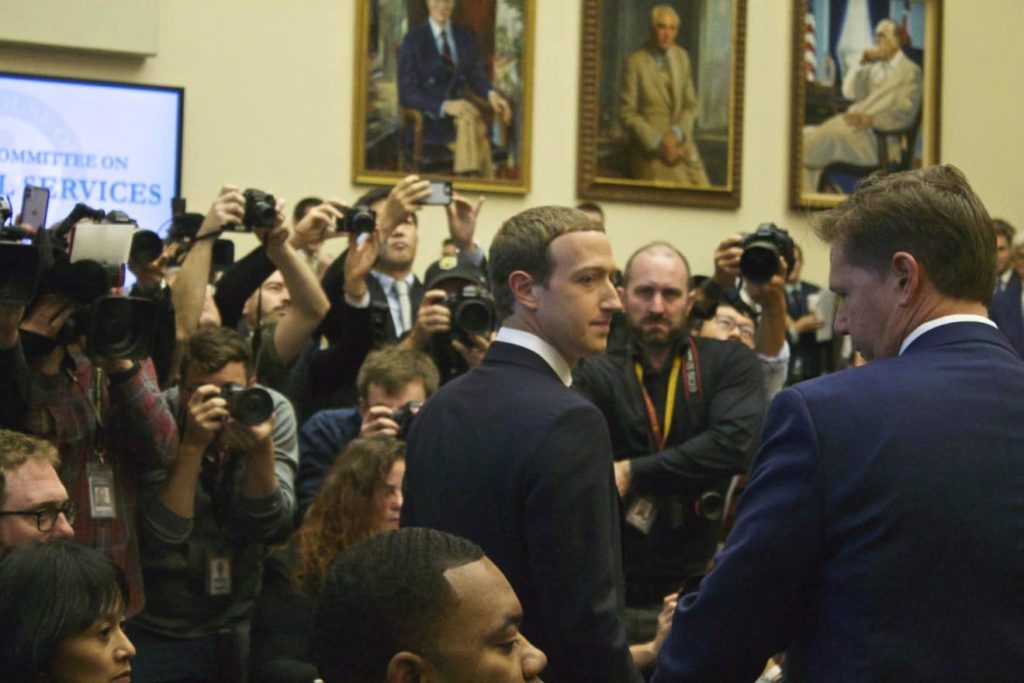Just two weeks after she introduced it, San Jose Congresswoman Zoe Lofgren’s election interference bill passed in the House on Wednesday, the same day lawmakers continued an ongoing discussion about Facebook’s role in elections.
A bill introduced by Lofgren, H.R. 4617, would require campaigns to report offers of illicit campaign assistance from foreign entities, create standards for online ad disclosure and prohibit the exchange of confidential campaign information with foreign governments.
The most fervent and persistent voice of dissent, Congressman Rodney Davis, highlighted that groups on both political spectrums have denounced this bill. Americans for Prosperity, a conservative action group, argued the proposal would create unnecessary restrictions on speech. The ACLU had sent a letter to Davis and Lofgren expressing concerns over the bill, mainly a fear that it infringes upon civil liberties and is “unconstitutionally overbroad.”
There have been no hearings with experts to discuss this particular bill, though there were eight hearings on elections during Lofgren’s chairmanship of the House administration committee. Davis rebuked the process, arguing that lawmakers should have at the very least spoken with representatives from the social media companies who would be implementing large parts of the bill. Republican congressmembers remained skeptical about the bill’s potential outside the House.
“It’s not going to be picked up by the Senate, it’s not going to be signed by the president,” said Congressman Tom Cole of Oklahoma on Tuesday night in a rules committee meeting.
But Democrats insisted — on the eve of another presidential election and with recent reports indicating that foreign entities were already attempting to interfere, wasn’t a bill like this long overdue?
“Some of us have a fundamental disagreement with the assertion that we’re rushing something to the floor. I think most Americans are probably asking the question, um, ‘What the hell is taking you so long to get something to the floor?’” said Congressman James McGovern.
The bill passed on a party line vote, 181 opposed and 227 in favor, including San Jose legislators Anna Eshoo and Ro Khanna.
Facebook CEO gets grilled
Earlier that morning, Facebook CEO Mark Zuckerberg fielded questions from lawmakers on Capitol Hill for hours in his second appearance before Congress.
The financial services committee hearing, called to examine the company’s impact on financial services and housing sectors, proved a ripe opportunity for lawmakers eager to question the social media executive. They began by inquiring what motivated the creation of Libra, the social media giant’s controversial cryptocurrency project.
“I view the financial infrastructure in the United States as outdated,” said Zuckerberg.
The 35-year-old admitted he did not know if Libra “is going to work” but he argued the company’s latest venture to launch cryptocurrency was a extension of American leadership, claiming the risks are outweighed by the possibility that the United States may fall behind on financial innovation. China, he pointed out, is moving quickly to launch a similar idea in the coming months.
“I personally worry that if we don’t do things like this, whether it’s this project or others like it, eventually we lose our leadership,” he said.
Zuckerberg repeatedly assured lawmakers that Libra, headquartered in Switzerland, would not launch until U.S. regulators had given their approval. And while Libra’s reserves would be primarily U.S. dollars, the company had “figured it might be better to not solely rely on one country’s currency.” Legislators worried about potential harm to the U.S. dollar.
“The dollar is very important to us as a tool, a tool of American power and also a tool of American values,” said Congressman Juan Vargas. “We would much prefer to put sanctions on a country than send our soldiers there.”


Although Facebook is seen as the face of Libra, the CEO repeatedly stated he does not control the association, which is currently made up of 21 other members. At a time when Facebook faces increased scrutiny and a tarnished reputation, lawmakers questioned whether the public could trust the company with their money. Other financial giants like PayPal, Visa and Mastercard had initially formed part of the Libra association, but have since withdrawn from the venture over regulatory concerns.
Congressman Al Green posed a series of questions regarding the heads of the remaining 21 companies in Libra — how many of them are minorities? How many are women? How many are members of the LGBTQ community? Zuckerberg replied that off the top of his head he did not know.
“The public needs to know whether this is an organization that is truly diverse or whether it is an organization that is owned and operated by a small group of persons all of whom have similar characteristics,” said Green.
Another Congressman inquired — would anonymous transactions be allowed on Libra? Under what conditions would fraudulent transactions be reversed? Would there be a limit on refunds? Zuckerberg admitted the company is still working out those policies.
But while some lawmakers struggled to get answers on specificity, others signaled difficulty understanding what exactly Libra would be. “So it’s like me having my money in Wells Fargo bank?” asked Congressman Ed Perlmutter.
Zuckerberg began to reply, “You could think about it that way. Although, we are not a bank. We’re not applying for a bank charter…”
“But that’s the problem,” interrupted Perlmutter, springing back up in his chair. “Trying to understand what this thing is that you all are creating.”
By the end of the nearly six-hour hearing, Zuckerberg had also been pressed on the presence of hate groups on Facebook, the company’s fact checking partners, consumer privacy and liability.
Contact Elizabeth Mendez at [email protected] or follow @izziemae on Twitter.



Leave a Reply
You must be logged in to post a comment.